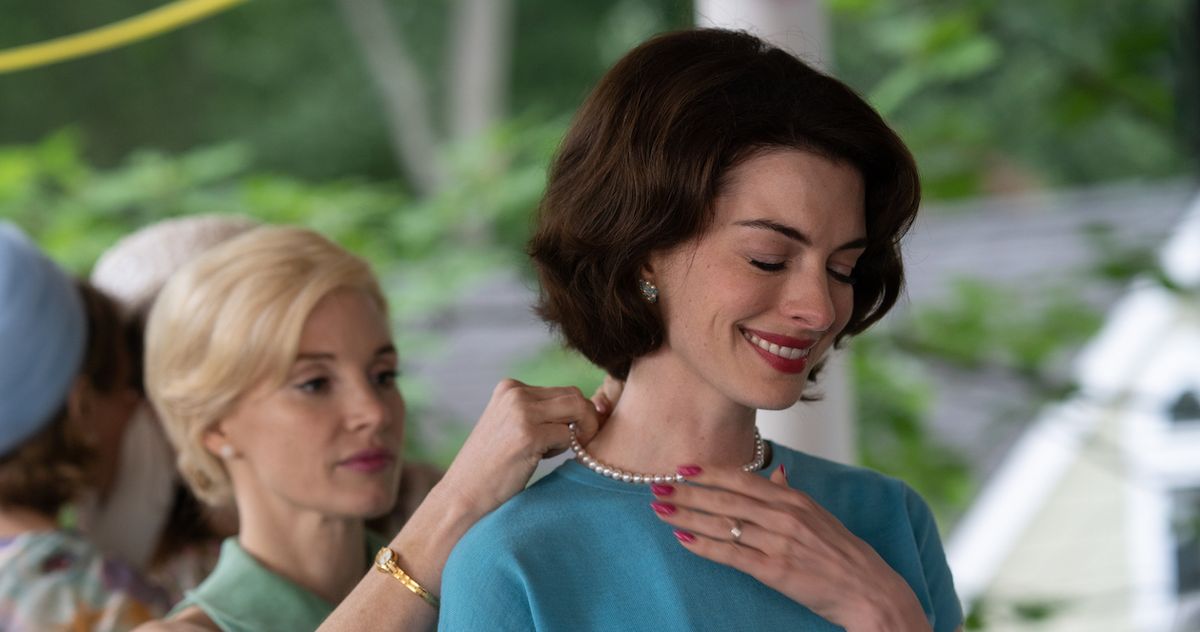Movie Reviews
Film Review: Season of Terror (1969) by Koji Wakamatsu

“What did you watch? A pink film?”
By the late 60s and the beginning of 70s, a number of independent filmmakers frequently mixed fiction with non-fiction while appropriating journalistic materials of well-known media events. Nagisa Oshima and Koji Wakamatsu were two of the most prominent directors in that regard, with “Season of Terror”, which was released just two months after “Go, Go, Second Time Virgin” , being a prominent sample.
Buy This Title
by clicking on the image below
In that fashion, the movie begins by presenting a series of press photographs and newspaper headlines, mostly focusing on the student riots and their clashes with the police, along with the military training of what appears to be a rightist group. As soon as the rather impressive montage is finished, we are introduced to the first protagonist of the movie, a former radical leader who has been out of sight for quite some time. Next, we get to meet the other two, with two policemen who have received reports by an informant that the young man is planning to assassinate PM Sato, who is about to leave for the US to negotiate about the return of Okinawa.
To do so, they plant a bug in his apartment and start listening to him through the apartment of a single across the street, whose owner has agreed to let them use one of the rooms. However, what they hear is not revolutionary in any way, since the young man seems to stay in his apartment all day, only being visited by two young beautiful women, who take care of his every need, and have almost constant sex with him. The visit of an old friend is the only moment they gain some info, with the visitor, however, ending up chastising the former activist for abandoning the “struggle”. As he accuses him of desertion and essentially considers him a hippy, the two policemen start to realize how futile the week they have to spend there is. If that was not enough, during the nights, the woman in the apartment the two officers are staying is also having sex.
One of the main and most evident purposes here is evidently to criticize the police, in a way though, that can only be described as intense mocking. Starting from the torturing of the informant, and continuing with the fact their “mission” is relegated into peeping in various forms, the ridiculousness of their actions becomes rather obvious. Their rhetoric, particularly of the younger of the two, since the older one seems to be somewhat more cynic, also moves in the same direction, with him mentioning torture as means to an end and compassion as a completely unnecessary concept. That the woman owner of the house has sex almost every night and essentially treats them as guests in a somewhat forceful manner, barging into their room to bring them tea and food whenever she likes, furthers their ridicule even more.
Where this aspect is cemented, though, is definitely on the finale of the movie, with Wakamatsu presenting it as quite ironic, again in the same mocking path. At the same time, and in a rather interesting aspect, the finale also makes the viewer question the whole movie and what we were seeing until that moment, particularly regarding the behavior and action of the young activist, in one of the best traits of the film, highlighting both Kazuo Komizu’s writing and Wakamatsu’s direction.
While essentially a pinku film, wherein Wakamatsu and Adachi ingeniously utilized the medium’s freedom to make pointed sociopolitical commentary, Wakamatsu found himself compelled to incorporate numerous sex scenes adhering to the genre’s “guidelines”. Consequently, the film brims with erotic sequences, approached this time with a delicate balance between the artistic and the voyeuristic. Wakamatsu strategically situates the camera at a distance from the protagonists for most of the film, minimizing overt titillation, although the recurring threesomes contribute to this aspect. Moreover, within the film’s framework, the voyeurs are portrayed as policemen, further enhancing the underlying satire and imparting the sex scenes with a distinct contextual significance.

In that regard, Hideo Ito’s black-and-white cinematography is excellent throughout, with the way he presents the two apartments as completely different spaces, with the one of the police being claustrophobic and the one of the revolutionary, a place of sex, being truly impressive to watch. The editing, with the exception of the rather fast introductory montage, results in a leisure pace, with Wakamatsu lingering intently on the sex scenes, and passing the rest in faster fashion. The buildup to the finale, though, which comes at an ideal moment in 78 minutes of the movie, is rather competent, with the splash of color also working well.
The acting definitely has a secondary role here, with the women appearing almost exclusively in sex scenes, and the men playing archetypal roles, even through this radically unusual approach Wakamatsu implements here.
“Season of Terror” is another testament to how Wakamatsu could take the sex film and make social comments and political statements through it, and a movie that has definitely stood the test of time

Movie Reviews
What If Jessica Chastain and Anne Hathaway Had a Mother-Off, and We All Lost?

The strange case of Mothers’ Instinct.
Photo: Neon
There’s a new movie starring Jessica Chastain and Anne Hathaway out this week, which is normally the sort of thing you’d expect to have heard about. But, after its release in the U.K. months ago, Mothers’ Instinct is slipping into U.S. theaters with as little splash as an Olympic diver nailing a triple somersault tuck. The film, a thriller directed by Benoît Delhomme, is getting the treatment typically reserved for a disaster, which is a shame, because I’ve been dying to discuss it with someone, and that’s hard when no one has any idea what you’re on about. Mothers’ Instinct is, indeed, pretty terrible, and not in the so-bad-it’s-good sense, and yet there’s something strangely moving about it. It’s a poignant example of how what looks like rich material to actors can turn out to be lousy material for audiences. Mothers’ Instinct is a remake of a 2018 Belgian film adapted from a novel by Barbara Abel, and watching it, you can appreciate exactly why these two major actors signed on to star in it. Funnily enough, those same qualities go a long way toward explaining why the movie doesn’t work.
Mothers’ Instinct isn’t camp, but it’s close enough that if you squint, you can almost see a version of the film that tips into something broader. Of course, if you squint, you wouldn’t be able to appreciate how immaculately Chastain and Hathaway are costumed. They look incredible — not like two 1960s housewives, which is what they’re playing, so much as two people who keep switching outfits because they can’t decide what to wear to the high-end Mad Men–themed party they’re headed to later. As Alice, Chastain is styled like a Hitchcock blonde in pin-curled ash updos and cardigan sets, while as Alice’s neighbor and friend Céline, Hathaway is given a Jackie O. look that involves a shoulder-length bouffant, pillbox hats, and gloves. They’re cosplayers in a gorgeous, airless setting, adjoining houses on a street that might as well be floating in space, the husbands (played by Anders Danielsen Lie and Josh Charles) vanishing to work for long stretches. The artificiality of this intensely manicured re-creation isn’t to any particular end, which gives the whole movie the air of a Don’t Worry Darling situation in which no one ever wakes up to the twist, instead sleepwalking through a stylized dream of Americana.
In fact, while Alice is restless over having given up her job as a journalist to take care of her son Theo (Eamon O’Connell), and Céline gets ostracized by the community after the death of her son, Max (Baylen D. Bielitz), Mothers’ Instinct isn’t actually all that interested in the pressures of living under a repressive 1960s patriarchy. Instead, it’s about another time-tested theme, one that’s best summed up as: Bitches be crazy. The perfect sheen of its surfaces — Delhomme, who’s making his directorial debut, is a cinematographer who started his career with The Scent of Green Papaya and has since worked with everyone from Tsai Ming-liang to Anton Corbijn — is paired with a score that shrieks unease from the opening scene, in which Céline is thrown a surprise birthday party. The source of this suspense isn’t revealed until later, after Max takes an unintended swan dive off the porch and the women’s friendship is threatened by grief, guilt, and suspicion. Is Céline in mourning, or does she actually irrationally blame Alice for what happened while developing an alarming fixation on Theo? Is Alice right to be suspicious of her bestie, who’s unable to have another baby, or is she being paranoid because the mental illness that previously resulted in her hospitalization has returned? Is it odd that two feminist actors jumped to participate in a film that traffics so freely in unexamined stereotypes about women and hysteria?
Not, it seems, when the opportunities to stare coldly into space or look on in glassy betrayal are this good. I’m not trying to sound snide here — the characters in Mothers’ Instinct have no convincing inner lives at all, but the exterior work of the actors playing them is choice stuff. When Alice and Céline are getting along, Chastain and Hathaway nuzzle together supportively like long-necked swans. When things start to go south, Chastain opts for an aloof distance with stricken eyes, while Hathaway prefers a labored smile that drops as soon as she’s alone. Theirs is a brittle-off no one can win, but both try their hardest anyway. The effort reaches its crescendo at Max’s funeral, where Hathaway’s enormous eyes glimmer through the barrier of a black lace veil and Chastain tilts her face up so that the elegant tracks of past tears can gleam in the light. The scene ends with Céline collapsing in anguish while Alice rushes her tantrumming child out of the church, an explosion of drama that would be so much more effective if the movie had left any room for modulation instead of starting at 10 and staying there. Mothers’ Instinct gets much sillier before it ends, but given how little it establishes as its baseline tone, it doesn’t feel fair to say it goes off the rails. Rather, as Hathaway stares brokenly into the dark and Chastain tears apart her nightstand drawer in panic, what comes to mind is how great a set of GIFs this movie will make someday. That’s not much, but I guess it’s something?
See All
Movie Reviews
Movie Review: Twisters – Kenbridge Victoria Dispatch

Movie Review: Twisters
Published 11:15 am Friday, July 26, 2024
1 of 3
Let me immediately cut to the chase (pun intended) and answer the question you’re all wondering. TWISTERS is a fun and entertaining summer blockbuster, but it in no way holds a candle to its predecessor TWISTER (1996). Still, the CGI is intense, the sound design is loud and immersive, and the lead performances — especially from Glen Powell — are sure to wow.
Following a horrible tragedy, meteorologist Kate Carter (Daisy Edgar-Jones) has spent years out of the storm chasing business. She now lives in the largely tornado-less New York City, using her innate understanding of storm systems to direct weather alerts. But when her old friend Javi (Anthony Ramos) begs her to join his privately-funded start-up, which is designed to use military-grade radars to learn more about tornadoes and save communities in Oklahoma, she agrees to give him a week of her time. It’s not too long before “tornado wrangler” influencer Tyler Owens (Glen Powell) enters the scene with his ragtag group of weather enthusiasts, creating a competition between scientific research and entertainment. Each group races to be the first on the scene, with Kate and Javi seeking to model the tornado and Tyler trying to get the most likes on social media. But can the two groups find a way to work together or will the competition be more vicious than the tornadoes?
I am admittedly judging myself for caring too much about a summer blockbuster’s plot, because that’s not really what any of us sign up for with these films. But the various encounters with tornadoes begins to feel slightly repetitive and creates pacing issues, making a two-hour film feel like its runtime. And for some reason, it seems like there is something missing when it comes to portraying the sheer terror of experiencing F5 tornadoes, unlike the original film; the main set pieces were not as memorable.
The film does little to make you care about whether the characters live or die, relying on Glen Powell and Daisy Edgar-Jones’s chemistry and natural charisma to do the heavy lifting. The second Powell steps out of his gigantic truck, with his cowboy hat and belt buckle sparkling in the sun… sorry, I just lost my train of thought… and that’s what TWISTERS is hoping. Powell’s magnetism is sure to knock you off your feet and distract you from the film’s middling plot. And while Edgar-Jones’s performance is more muted, due to her character’s battle with PTSD, she brings an important level of humanity to the film and a character to both see yourself in and root for. More than that, her chemistry with Powell is off the charts and will certainly leave you wanting their relationship explored more in a sequel. The supporting characters are not given much to work with and as such, don’t really engender much concern when they are in deadly situations.
One element of TWISTERS I liked more than TWISTER is it showed the emotional and financial toll tornadoes ravage on communities. Of course, that is an element of the first film, but TWISTERS does a great job showcasing the speed in which tornadoes can overtake and devastate a community, both in loss of life and loss of property. This, juxtaposed with the “fun” in chasing storms brings a real human element to the film. I also want to give a shoutout to the movie not having any sad animal scenes (apart from a possible run-in with a chicken). So for all of you sickos excited to see another flying cow, this isn’t for you.
TWISTERS is the exact kind of movie you need to see in a theater so you can get the full experience. Where else can you admire the cinematography, get immersed in the sound design, and lose yourself in Glen Powell’s cowboy hat and million dollar smile? I saw it in a Dolby theater and was blown away.
There is no end credit scene.
My Review: B
Movie Reviews
Raayan Telugu Movie Review, Dhanush, Sundeep Kishan

Movie Name : Raayan
Release Date : July 26, 2024
123telugu.com Rating : 2.75/5
Starring : Dhanush, Sandeep Kishan, Kalidasu Jairam, Aparna Balamurali, SJ Surya, Saravanan
Director : Dhanush
Producers : Kalanithi Maran
Music Director: A. R. Rahman
Cinematographer: Om Prakash
Editor: Prasanna GK
Related Links : Trailer
Raayan is Dhanush’s 50th film as an actor and his second as a director. The film released in cinemas worldwide today amid moderate expectations. This review explores how the film performed. Read on.
Story:
Kaartavaraayan aka Raayan (Dhanush), enjoys a quiet life in Anjanaouram with his brothers Muthuvelaraayan (Sundeep Kishan), Maanikyaraayan (Kalidas Jayaram), and sister Durga (Dushara Vijayan). Their tranquility is shattered when Muthu gets into a fight with the local don Dorai’s (Saravanan) men, setting off a dangerous rivalry. Sethuram (SJ Suryah), another gangster, steps into the fray with a deadly plan to eliminate Raayan. What drives Sethuram’s desire to kill Raayan? Who is Raayan beneath the surface? What is his true purpose? The film unveils all these secrets.
Plus Points:
Expectations were high when the film was announced, as it is directed by Dhanush. Besides his intense acting, Dhanush demonstrates his directing skills neatly.
Sundeep Kishan takes on a significant role and delivers an exceptional performance with his portrayal of a character with grey shades. His scenes with Dhanush and Aparna Balamurali are enjoyable.
Dushara Vijayan is unexpectedly strong in her role, which becomes more intense in the second half. SJ Suryah, as usual, gives an exemplary performance. Aparna Balamurali, Selvaraghavan, and others perform decently in their respective roles.
Minus Points:
The movie doesn’t offer much that’s new for viewers. Dhanush presents a routine story with very few twists, but the slow-paced screenplay diminishes the story’s impact.
There is no strong hook to illustrate the conflict between SJ Suryah and Dhanush. The reasons provided are unconvincing, and SJ Suryah’s potential is not fully utilised.
The film caters mainly to action movie enthusiasts and may not be suitable for family audiences due to its violent content.
Prakash Raj’s character lacks originality, and Varalaxmi Sarathkumar has minimal relevance to the plot. Additionally, including more emotional depth might have improved the film. The second half feels dragged out, with unnecessary scenes added to extend the film.
Technical Aspects:
As a director, writer, and actor, Dhanush displays his skills, but as a writer and director, he could have crafted a more engaging story. The sluggish second half could have been tightened.
Given the high expectations, AR Rahman’s work is noticeable but slightly disappointing. The cinematography by Om Prakash is decent, while editing by Prasanna GK could have been better. Production values are satisfactory.
Verdict:
On the whole, Raayan offers nothing new but remains passable due to the strong performances by Dhanush, Sundeep Kishan, Dushara Vijayan, and SJ Suryah. The action scenes are adequate but not suitable for family audiences. The lack of a strong hook point and a dragging second half are notable drawbacks. If you still decide to watch it, manage your expectations accordingly.
123telugu.com Rating: 2.75/5
Reviewed by 123telugu Team
Click Here For Telugu Review
Articles that might interest you:
-

 World1 week ago
World1 week agoOne dead after car crashes into restaurant in Paris
-

 Midwest1 week ago
Midwest1 week agoMichigan rep posts video response to Stephen Colbert's joke about his RNC speech: 'Touché'
-

 News1 week ago
News1 week agoVideo: Young Republicans on Why Their Party Isn’t Reaching Gen Z (And What They Can Do About It)
-

 News1 week ago
News1 week agoIn Milwaukee, Black Voters Struggle to Find a Home With Either Party
-

 Politics1 week ago
Politics1 week agoFox News Politics: The Call is Coming from Inside the House
-

 Movie Reviews1 week ago
Movie Reviews1 week agoMovie Review: A new generation drives into the storm in rousing ‘Twisters’
-

 News1 week ago
News1 week agoVideo: J.D. Vance Accepts Vice-Presidential Nomination
-

 World1 week ago
World1 week agoTrump to take RNC stage for first speech since assassination attempt
















